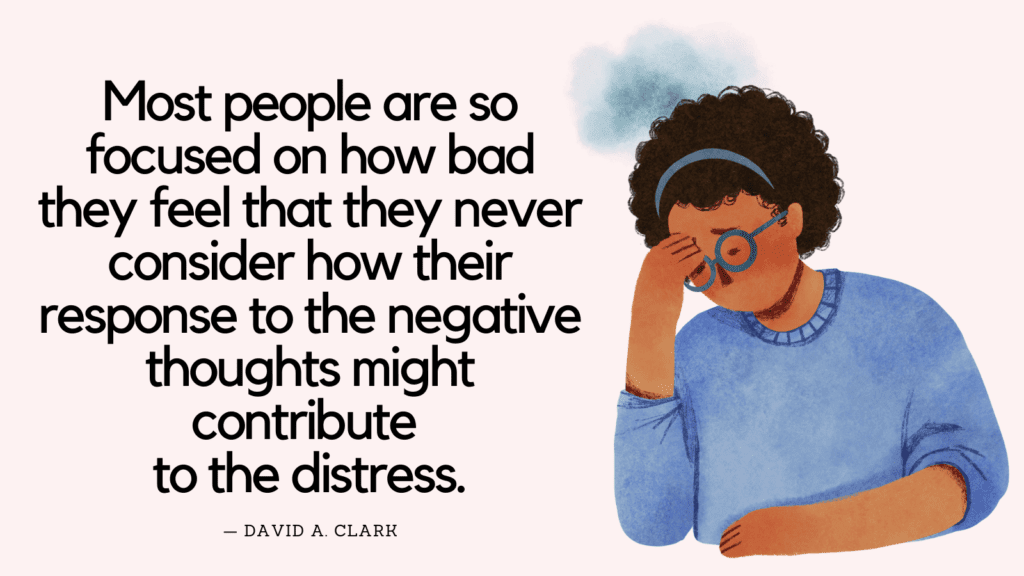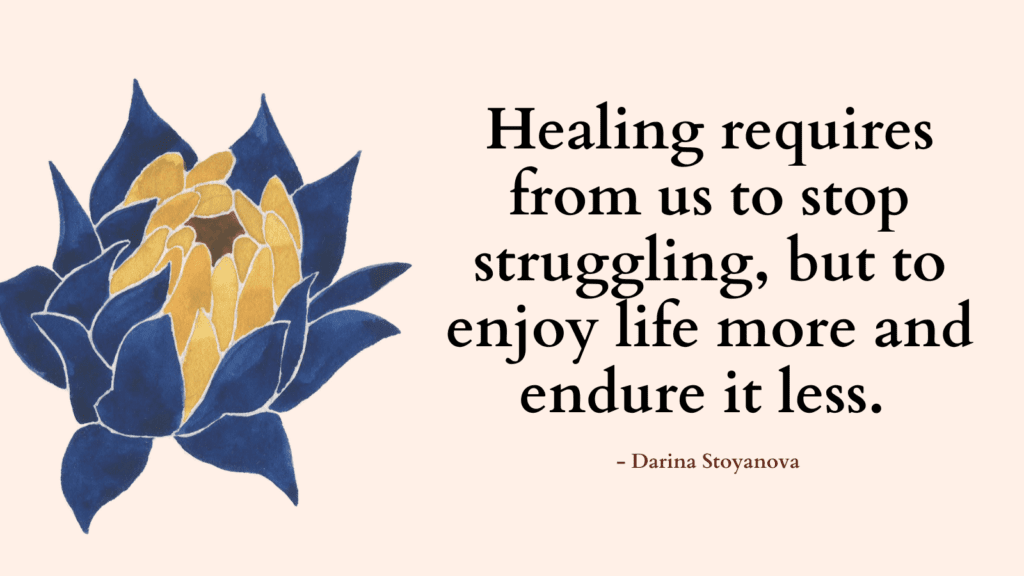This post contains some of the best negative mind quotes.
Negative Mind Quotes
1. “It’s been said that people on average can have somewhere in the range of 12,000 to 60,000 musings for every day – if not more. Truly interesting, isn’t that so? Here’s the issue. Some speculate that a surprising 80 percent of our thoughts are negative.”— Stefan Merzahn
2. “These repetitive thoughts, that emphasis on the negative, frequently called Automatic Negative Thoughts. They generally cause us to accept the world is a scary dark spot with no place for daylight and happiness.”— Stefan Merzahn
3. “We want to think more positively, but the harder we try, the more compelling the negative thoughts are. This sense of uncontrollability can cause considerable insecurity and self-doubt, strengthening unhelpful beliefs that we’re weak, a failure, defeated, or undeserving. Anxious thoughts of personal threat and danger become overpowering, and thoughts of a hopeless future appear self-evident.”— David A. Clark
4. “In an attempt to overcome negative thoughts, many people tend to oppose negative thinking mentally by using words like ‘not,’ ‘don’t’ and so on. The subconscious mind does not register words such as ‘don’t, and ‘not.’ This sort of opposition tactic aggravates the situation.”— Sebastian Loxely
5. “Negative thoughts additionally, at times, cause you to accept things will never show signs of change that you are bound for misery for the rest of life and that being alive may not be justified, despite all the trouble.”— Stefan Merzahn
6. “Occasionally, we all think bad things. That is part of a human being. But it is time to change because you still think about negative thoughts, particularly about yourself. Otherwise, those thoughts will begin to be believed, and you will run the risk of sending yourself into a downward spiral.”—Sebastian Loxely
Related: Emotional Abuse In Relationships Quiz
7. “Most people are so focused on how bad they feel that they never consider how their response to the negative thoughts might contribute to the distress.”— David A. Clark
8. “We’ve developed so many different excuses for why we live in bondage to negative thoughts, painful memories, poor choices, difficult people, and challenging situations and circumstances that it’s hard to separate truth from fiction.”— Allison Bottke
9. “Maybe your repetitive negative thoughts aren’t about the future but rather some past disappointment. You keep asking yourself, Why did this happen to me? Or, Why can’t my life be different? This relentless questioning of the past is called rumination.”— David A. Clark
10. “Thinking negative about yourself will become a habit of growing as time passes. So it’s usually best to get rid of those negative thoughts as soon as you start to feel them materializing.”—Sebastian Loxely
Related: Covert Verbal Abuse: What Is It & How To Recover From Verbal Abuse
11. “Negative thoughts are one of the difficulties that people with anxiety often face.”— Sebastian Loxely
12. “Many techniques can help you separate from negative thoughts, but it all starts with paying more attention to your thought processes, becoming an observer rather than a thinker.”— Sebastian Loxely
13. “Learning to stop thinking about negative thoughts begins with learning to cultivate consciousness. Why? Because if you ignore your thoughts, you just let them move freely and distract you from what is happening NOW.”— Sebastian Loxely
14. “Have you ever experienced the ‘what if’ cycle? You start thinking negative thoughts like ‘What if I can’t answer the questions’ or ‘What if I make a fool of myself,’ which worsens your feelings about the situation.”— Sebastian Loxely
15. “Negative Automatic Thoughts will have a direct effect on your behavior. When you have negative thoughts, this will often result in particular feelings. So, for example, if you start thinking that you are making a fool of yourself, this will change the way you feel – you might feel depressed, or maybe you feel angry with yourself. But the result is that your feelings have been affected.”— Sebastian Loxely
16. “Negative thoughts and feelings you know will attract adverse events and people who will hinder you from attaining the goal you have set.”— Sebastian Loxely
17. “Sometimes it helps to use your logical mind to convince yourself that the negative thoughts are baseless and false. This sort of deliberation will help you to generate the most potent positive affirmation.”— Sebastian Loxely
Related: Forgiving Someone Who Isn’t Sorry: 9-Step Guide To Free Yourself From The Past
18. “When you realize what negative thoughts are annoying you the most, you can begin dealing with an answer to resolve the issue. For instance, if you’re truly annoyed by a colleague, at that point, approach your supervisor with the issue and ask you can be moved to another piece of the workplace where you don’t need to interface with them to such an extent.”— Stefan Merzahn
19. “Take a break from negative thoughts. It is conceivable to figure out how to isolate from negative thoughts. One approach to do this is to permit yourself a specific measure of time (possibly five minutes) with the thought. At that point, enjoy a reprieve from concentrating on it and proceed onward with your day.”— Stefan Merzahn
20. “Challenge negative thoughts. At whatever point you have a contorted idea, stop and evaluate whether it is exact. Consider how you would react if a companion talked about herself that way. You would most likely offer a good reply to their negative view. Apply a similar rationale to your thoughts.”— Stefan Merzahn
21. “A beneficial technique used to overcome negative thoughts and feelings is to repeat a positive affirmation that makes negative thinking false and powerless.”— Sebastian Loxely
Related: Negative Core Beliefs List (& 8 Tips On How To Challenge Them)
22. “Unfortunately, clearing your mental clutter isn’t as simple as eliminating a possession. You can’t “throw away” a thought and expect it to stay gone. In fact, like a never-ending game of Whack-a-Mole, your negative thoughts have a way of popping back up as soon as you slap them down.” – S.J. Scott & Barrie Davenport
23. “Our thoughts make us restless, empty, and agitated as we project into the future or look to the past for answers. In fact, nearly every negative thought you have relates to the past or future. It’s common to find yourself trapped in a looping cycle of regretful thinking or worry thoughts, even while feeling desperate to escape the never-ending tape playing in your mind.” – S.J. Scott & Barrie Davenport
24. “The longer the negative thoughts continue to loop, the worse you feel. It’s almost as if there were two of you—the thinker and the judge, the person thinking the thoughts and the person aware that you are thinking them and judging how bad they are.” – S.J. Scott & Barrie Davenport
25. “Sometimes our thoughts paralyze us with bad feelings, and it’s those feelings that rob us of inner peace and contentment.” – S.J. Scott & Barrie Davenport
26. “Although our thoughts are the culprit responsible for so much distress, we assume there’s not much to be done about it. You can’t stop your mind from thinking, right? You can’t shut off your brain at will or rid yourself of the mental chatter and associated feelings that prevent you from enjoying life fully.” – S.J. Scott & Barrie Davenport
27. “Although it appears you and your thoughts are inseparable, you do possess a “conscious self” that can step in with intention and manage your thoughts. You have far more control of your thoughts than you think. When you learn how to control your mind, you open a door to the vastness of creativity, inspiration, and brilliance that is just behind the clutter of those untamed thoughts.” – S.J. Scott & Barrie Davenport
28. “Decluttering our stuff and cutting back on time spent with our digital devices does help eliminate some of the anxiety and negative thinking. But we still have plenty of reason to get lost in the mental clutter of negative thinking, worry, and regret.” – S.J. Scott & Barrie Davenport
29. “Any negative thought that enters your mind feels real, so there is an impulse to accept it as reality. But you are not living in a cave, facing lifethreatening situations daily. You may be hardwired to think negatively, but you don’t have to accept this predisposition.” – S.J. Scott & Barrie Davenport
30. “The less time you spend “in your head” with intrusive, negative thoughts, the more time you have to enjoy the present moment—and every present moment for the rest of your life.” – S.J. Scott & Barrie Davenport




